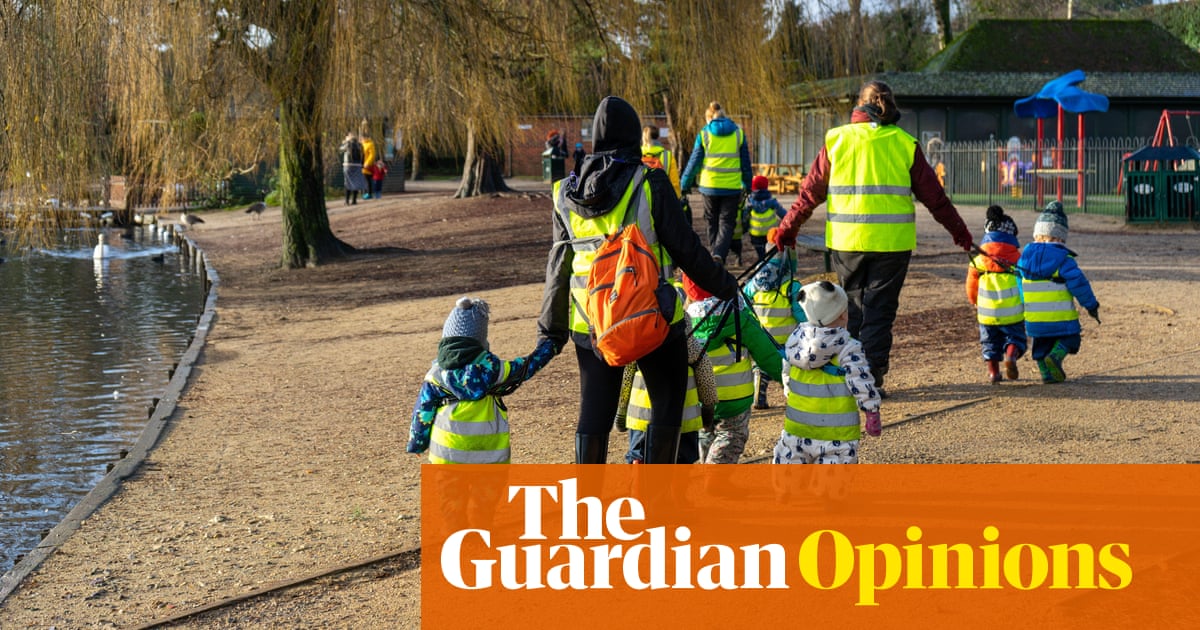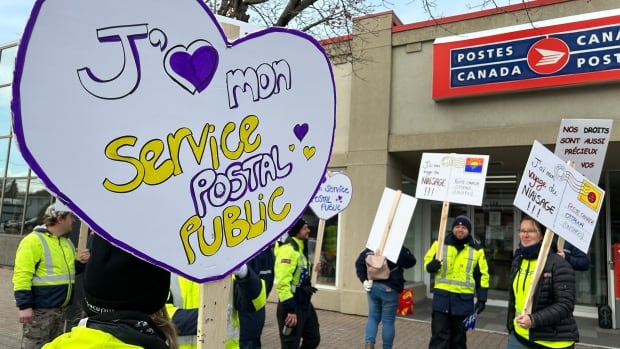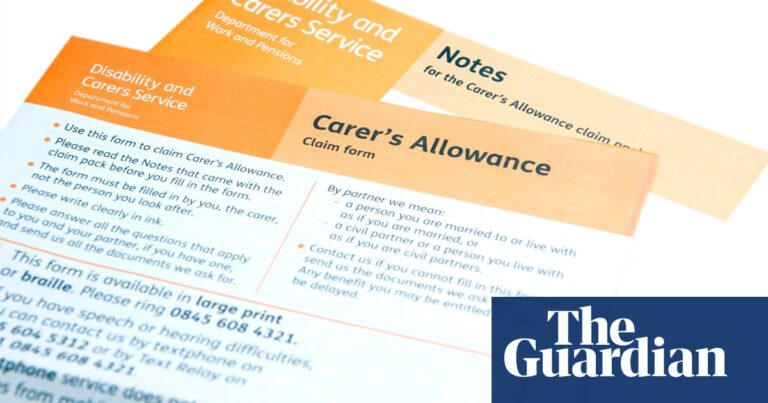
Panic and a screeching U-turn. The prime minister dismissed claims there were too few nursery places for every two-year-old in England (with working parents) on 1 April, the day that entitlement to 15 hours a week began. He even said: “Staffing levels have increased and more people are at work in the sector and the number of places has also increased over the past year.” Outside the Commons, you might call that an untruth. Ofsted’s registers show a fall in early years places every year since 2016: 17,800 places were lost in the year to November 2023 alone.
As usual with the Conservatives’ un-evidenced policies, blunt truth eventually hits them on the head. The Department for Education just confessed that it needs 85,000 more nursery places and 40,000 more staff to be able to meet its target of expanding 30 free hours to children aged nine months by September 2025. In an acute recruitment crisis, nursery work is on the Sun’s list of the UK’s most unpopular jobs. Neil Leitch, head of the Early Years Alliance, told me: “Pretending things are resolved is at best unhelpful and at worst shameful.” The Alliance represents 14,000 nursery providers, and runs 41 not-for-profit nurseries, often in deprived areas. “All of them could accommodate more children if we could find appropriately skilled staff,” he says, but so many leave due to exhaustion and low pay.
On Monday the government boasted that 195,355 two-year-olds already have funded places. This is good news, except there are more than 600,000 two-year-olds in England, according to the latest estimates from the Office for National Statistics. On Wednesday, expect a devastating report from the National Audit Office: no one thinks there will be places for all children aged nine months to five years to get those 30 free hours a week.
Credit where it’s due: austerity Tories have vastly expanded the early years promise. But the chancellor pulled it out of his hat for the 2023 budget, after no consultation with thunder-struck nursery providers. Tories copying popular Labour policies is a good idea, lacking their own. Astonishingly, a government cutting everything will pay for 80% of “childcare” in England (I’ll come back to that word).
But where are the places? They claim that 79% of two-year-olds whose parents applied in time for 31 March have received “code validation” and can claim a place with a childcare provider. But many have no place, says Labour: they are on waiting lists, and some deprived areas are nursery “deserts”. Last year, Labour said there were two children for every place in England. At the same time, the stipulated ratio of staff to two-year-olds was eased from 1:4 to 1:5.
The government calls it “childcare” as its stated aim is “to support increased parental engagement in the labour market”: the OBR estimates 60,000 more parents will enter work. More GDP growth and less need for universal credit are good motives, but only up to a point. Listen to the language: the Tory “childcare” policy is about warehousing children, while a more forward-thinking policy would land on nursery education, which transforms a child’s whole life.
This “childcare” also means only two-year-olds with working parents qualify, widening the social gulf: children most in need of a good nursery are the poorest, and most likely to have addicted, mentally ill or out-of-work parents. Add in the tens of thousands of migrant children, whose parents have “no recourse to public funds”, who are denied equal nursery provision.
The shadow education secretary, Bridget Phillipson, has made early years a Labour priority. She plans “seamless support from the end of parental leave to the end of primary school” – and now the Tories are trying to cut in on Labour’s idea.
Free breakfast clubs for all primaries in England is a first step in her vision of wraparound support for children, with a mental health counsellor in every secondary school. She plans nurseries embedded inside the education system, within primary schools with spare space as their numbers are falling. Remember, the government had banned councils from providing nurseries out of pure ideology, demanding that all must be private. Labour says the government, panicking at the lack of places, recently lifted that ban and now adopt the Phillipson plan: councils can open maintained nurseries and place them inside state schools.
Tories are about to seize another longtime Phillipson policy too: Ofsted may ditch its brutal one-word judgments for a more rounded opinion on schools and nurseries. If Sunak wants to steal more of Labour’s popular policies, why not scrap VAT relief for private schools to fund extra state school teachers? YouGov finds 71% support that, just 19% against.
To see how a better early years model might develop, take a visit to St Stephen’s combined nursery, children’s centre and primary school in one of the poorest districts of Newham, east London. Like its nursery, its primary school just got yet another glowing report from Ofsted about every aspect, reporting that “by the end of Year 1, the vast majority of pupils are fluent readers”. St Stephen’s takes children from babyhood – 91% of whom don’t have English as their first language, a third on free school meals, and many with special educational needs and disabilities – and nurtures them to remarkable results at age 11, Neena Lall OBE, dynamo headteacher for over 20 years, told me.
“That’s because we have them and their families all the way through,” she said. She shows lists of daily events for parents, from English for Speakers of Other Languages (Esol) to zumba, a food bank and cost-of-living advice, sessions supporting parents to play, cook and read with children, careers and training advice, health visitor and midwife sessions, with stay-and-play for timid new mothers to meet.
St Stephen’s was built as a Sure Start, and some councils managed to keep a few others going when most were wrecked after 2010. Lall juggles her budgets but things are getting very tight, with funding cuts and rising teachers’ pay.
Sure Starts were rarely integrated into schools. Phillipson’s plan looks more like the St Stephen’s model, placing nurseries into seamless babyhood-to-11-year-old education. Labour refuses to use the Sure Start label for fear it suggests uncounted spending, but David Bell, a former chief inspector at Ofsted, is drawing up a report for them on the future of early years: it may look something like this.
However, waiting for a costed plan leaves it open to wild attacks, like the one from Gillian Keegan, the education secretary, in a BBC Breakfast interview with Sally Nugent: “The thing that is most going to impact this system rollout is if Labour got into power because they’ve said they will not continue with childcare.” Nugent called it out, as presenters should do more often: “That’s not true.” Labour’s policy will provide more, not less, than the present inadequate nursery places – and its prime purpose will not be warehousing, but best education.






